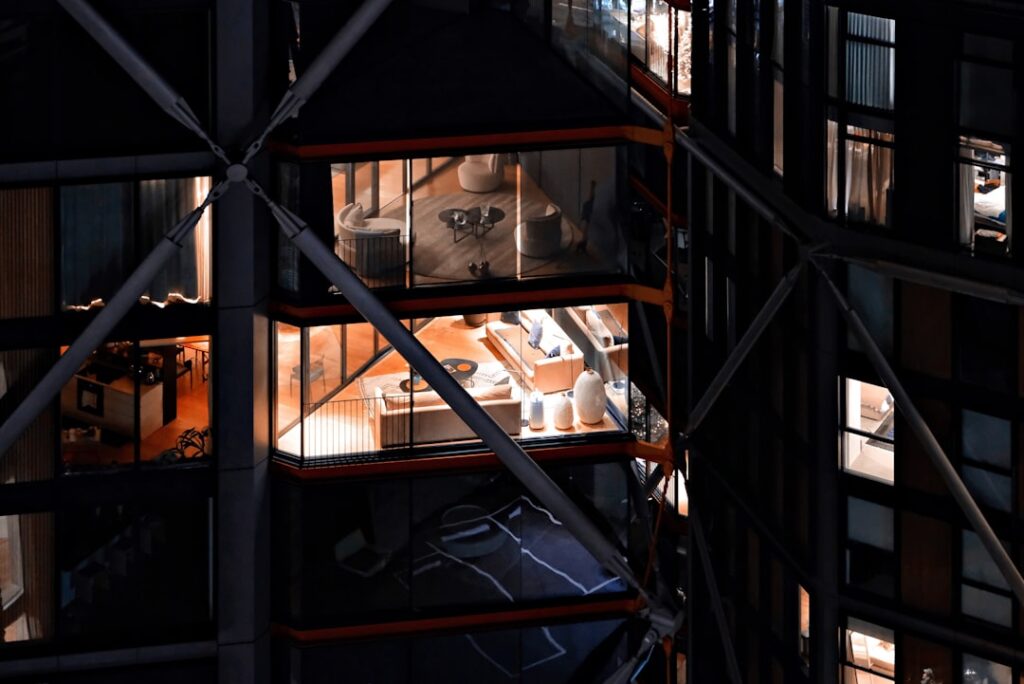The Dubai real estate market is a dynamic and multifaceted sector that has garnered significant attention from both local and international investors. Over the past two decades, Dubai has transformed from a modest trading port into a global metropolis, characterized by its iconic skyline, luxury lifestyle, and diverse cultural landscape. The real estate market in Dubai is particularly appealing due to its strategic location, which serves as a gateway between Europe, Asia, and Africa.
This geographical advantage has attracted multinational corporations and expatriates, further driving demand for residential and commercial properties. The market is characterized by a variety of property types, ranging from opulent villas and high-rise apartments to commercial spaces and retail outlets. The government of Dubai has implemented several initiatives to stimulate growth in the real estate sector, including the introduction of long-term residency visas for property investors and the establishment of freehold areas where foreign nationals can own property outright.
These measures have not only enhanced investor confidence but have also contributed to a more transparent and regulated market environment. As a result, the Dubai real estate market has become a focal point for investment, with numerous opportunities for both seasoned investors and newcomers alike.
Key Takeaways
- Dubai real estate market is dynamic and offers a wide range of investment opportunities.
- Investment properties in Dubai include residential, commercial, and off-plan properties.
- Factors to consider when investing in Dubai properties include location, market trends, and potential for rental income.
- Foreign investors should be aware of legal and regulatory considerations such as ownership restrictions and taxes.
- Financing options for investment properties in Dubai include bank loans and developer payment plans.
Types of Investment Properties in Dubai
Investors in Dubai have access to a diverse array of property types, each catering to different preferences and investment strategies. Residential properties are among the most sought-after investments, with options ranging from luxurious villas in gated communities to modern apartments in high-rise buildings. Areas such as Palm Jumeirah, Downtown Dubai, and Dubai Marina are particularly popular among expatriates and affluent buyers, offering stunning views and proximity to key amenities.
The demand for residential properties is often driven by the influx of expatriates seeking housing, making it a lucrative segment for investors. In addition to residential properties, commercial real estate presents another attractive investment avenue. This category includes office spaces, retail outlets, and industrial properties.
The rapid growth of Dubai as a business hub has led to an increased demand for commercial spaces, particularly in areas like Business Bay and Jumeirah Lake Towers. Investors can benefit from long-term leases with businesses looking to establish their presence in the region. Furthermore, the hospitality sector has seen significant growth, with hotels and serviced apartments becoming popular investment options due to the city’s status as a tourist destination.
The diverse range of investment properties available in Dubai allows investors to tailor their portfolios according to their risk appetite and financial goals.
Factors to Consider When Investing in Dubai Properties
When considering an investment in Dubai’s real estate market, several critical factors must be taken into account to ensure a successful venture. One of the foremost considerations is location. The desirability of a property is often influenced by its proximity to key amenities such as schools, hospitals, shopping centers, and public transportation.
Areas that are well-connected and offer a vibrant lifestyle tend to attract higher demand, which can lead to increased property values over time. Investors should conduct thorough research on emerging neighborhoods that may offer growth potential as infrastructure developments continue. Another essential factor is understanding the market trends and economic indicators that can impact property values.
The performance of the Dubai real estate market is closely tied to broader economic conditions, including tourism rates, employment levels, and foreign direct investment. Investors should stay informed about government policies that may affect the market, such as changes in visa regulations or taxation policies. Additionally, analyzing historical price trends and rental yields can provide valuable insights into potential returns on investment.
By taking these factors into account, investors can make informed decisions that align with their financial objectives.
Legal and Regulatory Considerations for Foreign Investors
Navigating the legal landscape is crucial for foreign investors looking to enter the Dubai real estate market. The UAE has established a regulatory framework that governs property ownership and transactions, ensuring transparency and protection for investors. Foreign nationals are permitted to purchase property in designated freehold areas, where they can enjoy full ownership rights.
However, it is essential for investors to familiarize themselves with the specific regulations governing these areas, as well as any restrictions that may apply. One important legal consideration is the requirement for foreign investors to obtain a title deed upon purchasing a property. This document serves as proof of ownership and must be registered with the Dubai Land Department (DLD).
Additionally, investors should be aware of the various fees associated with property transactions, including registration fees, service charges, and maintenance costs. Engaging with a reputable real estate agent or legal advisor can help navigate these complexities and ensure compliance with local laws. Understanding the legal framework not only protects investors’ interests but also enhances their overall experience in the Dubai real estate market.
Financing Options for Investment Properties in Dubai
Financing options for purchasing investment properties in Dubai are diverse and cater to various investor profiles. One of the most common methods is through mortgage financing offered by local banks and financial institutions. Many banks provide attractive mortgage packages specifically designed for expatriates and foreign investors, often requiring a down payment ranging from 20% to 50% of the property’s value.
Interest rates can vary based on factors such as the investor’s credit history and the type of property being purchased. In addition to traditional mortgages, investors may also explore alternative financing options such as developer financing or off-plan payment plans. Many developers offer flexible payment structures that allow buyers to pay in installments during the construction phase of a property.
This approach can be particularly appealing for investors looking to capitalize on pre-construction prices while minimizing upfront costs. Furthermore, some investors may consider leveraging their existing assets or seeking partnerships with other investors to pool resources for larger investments. Understanding the various financing avenues available can empower investors to make strategic decisions that align with their financial capabilities.
Potential Risks and Challenges of Investing in Dubai Properties
While investing in Dubai’s real estate market presents numerous opportunities, it is essential to acknowledge the potential risks and challenges that may arise. One significant risk is market volatility, which can be influenced by economic fluctuations or changes in government policies. For instance, during periods of economic downturns or geopolitical tensions, property values may experience declines, impacting investors’ returns.
Therefore, conducting thorough market research and staying informed about economic indicators is crucial for mitigating this risk. Another challenge that investors may face is oversupply in certain segments of the market. In recent years, there has been a surge in new developments across various neighborhoods, leading to increased competition among property owners.
This oversupply can result in lower rental yields and longer vacancy periods for landlords. Investors should carefully assess supply-demand dynamics within specific areas before making investment decisions. Additionally, understanding tenant preferences and market trends can help investors position their properties effectively to attract potential renters.
Tips for Finding the Right Investment Property in Dubai
Finding the right investment property in Dubai requires a strategic approach and thorough research. One effective strategy is to engage with local real estate agents who possess extensive knowledge of the market landscape. These professionals can provide valuable insights into emerging neighborhoods, current market trends, and potential investment opportunities that align with an investor’s goals.
Building relationships with reputable agents can also facilitate access to off-market listings that may not be widely advertised. Another important tip is to conduct comprehensive due diligence on any potential property before making a purchase decision. This includes reviewing property documents, understanding service charges, and assessing the overall condition of the property.
Investors should also consider visiting properties in person to gauge their appeal and suitability for their target market. Additionally, analyzing comparable properties in the area can provide insights into pricing trends and rental yields. By taking these steps, investors can enhance their chances of identifying properties that offer strong potential for appreciation and rental income.
The Future Outlook for Investment Properties in Dubai
The future outlook for investment properties in Dubai appears promising, driven by several key factors that are likely to shape the market landscape in the coming years. One significant driver is the ongoing development of infrastructure projects aimed at enhancing connectivity and accessibility throughout the emirate. Initiatives such as the expansion of public transportation networks and new roadways are expected to boost property values in previously underserved areas.
Moreover, Dubai’s commitment to diversifying its economy beyond oil dependency has led to increased investments in sectors such as tourism, technology, and renewable energy. As these sectors continue to grow, they will likely attract more expatriates and businesses seeking opportunities within the emirate. This influx will further stimulate demand for residential and commercial properties, creating favorable conditions for investors.
Additionally, upcoming events such as Expo 2025 are anticipated to draw global attention to Dubai, potentially leading to increased tourism and economic activity. The government’s proactive approach to attracting foreign investment through favorable policies will likely continue to bolster investor confidence in the real estate sector. Overall, while challenges may persist, the long-term outlook for investment properties in Dubai remains optimistic as the emirate continues its trajectory toward becoming a leading global city.
If you are considering investing in properties in Dubai, you may want to check out this article on luxury homes for sale in the city. It provides valuable insights into the real estate market and the opportunities available for investors. Additionally, you can also refer to this ultimate Dubai property management guide for tips on managing your investment properties effectively. These resources can help you make informed decisions and maximize your returns in the Dubai property market.




